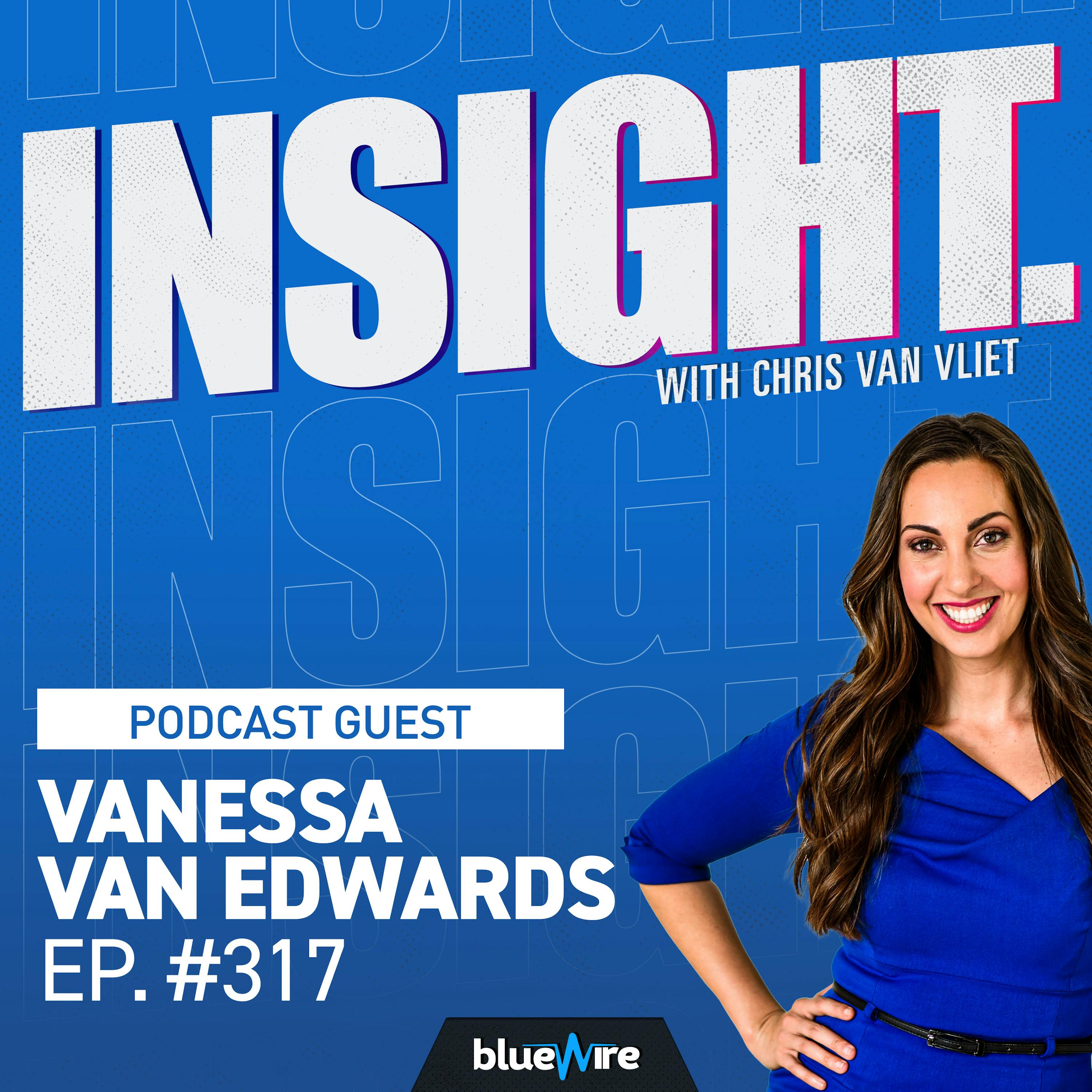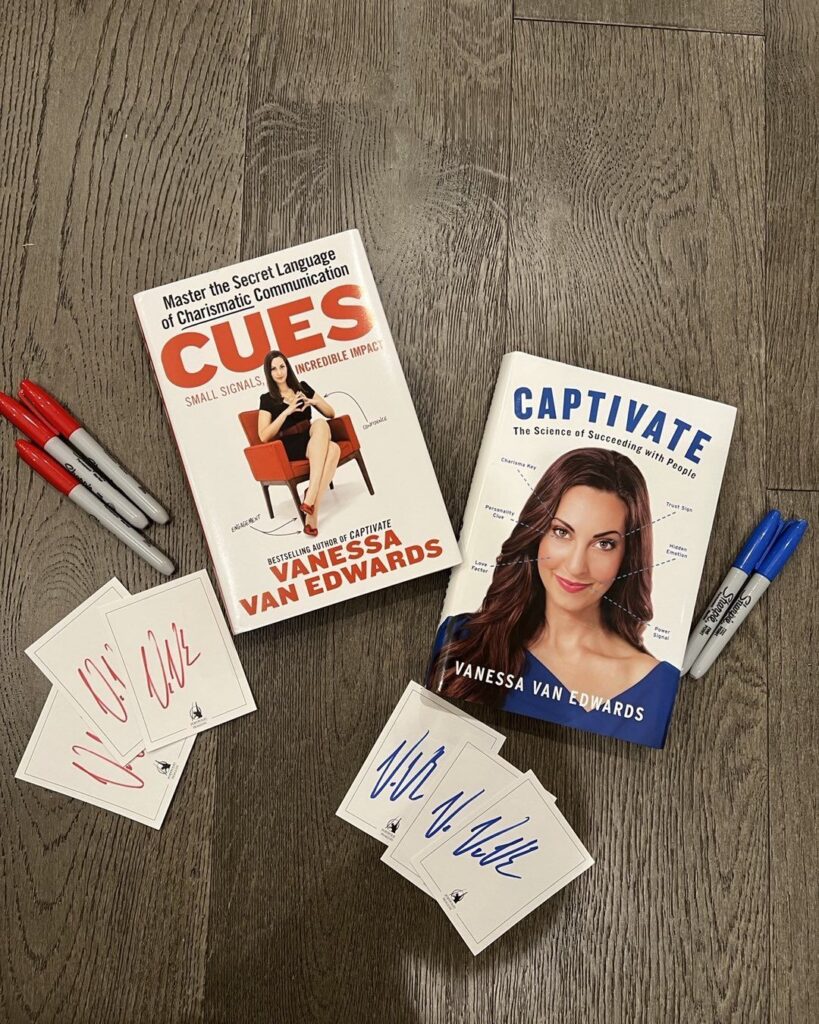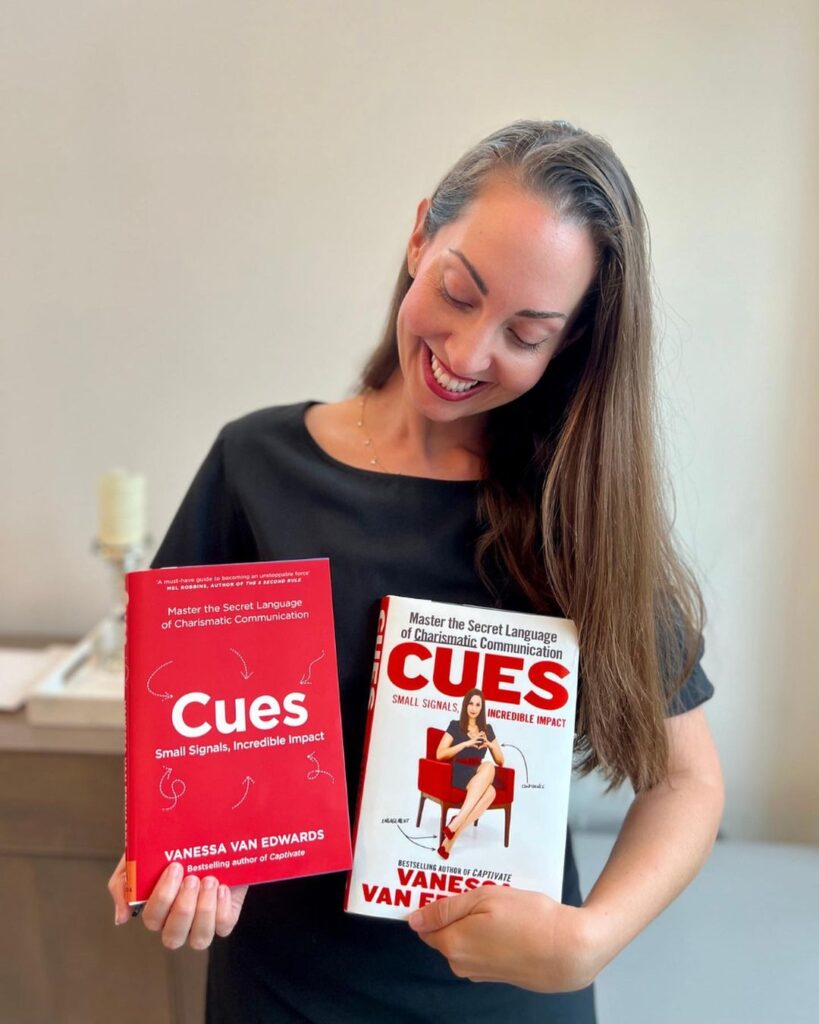How To Become More Charismatic And Learn To Read Body Language With Vanessa Van Edwards

How To Become More Charismatic And Learn To Read Body Language With Vanessa Van Edwards
Vanessa Van Edwards (@vvanedwards) is the Lead Investigator at Science of People and is the bestselling author of Captivate: The Science of Succeeding with People. Her new book called Cues: Master The Secret Language of Charismatic Communication is available on March 1, 2022. She joins Chris Van Vliet to talk about how charisma is something that can be cultivated, how to read body language, tips to improve your communication, how to have better Zoom meetings and much more!
Find out more about Vanessa Van Edwards here: http://scienceofpeople.com
Congratulations on the new book.
“Oh my gosh, thank you so much. It is a labour of ,ove that is 17 years in the making. That ages me! If anyone has a dream and you are on year 5,10 or 17, just keep going.”
I always say to people “just start.”
“Absolutely. This all started with a little folder I created on my desktop called ‘Curious Cues.’ It was a really weird time in the media where all these athletes were being accused of doping and there was also the Amanda Knox scandal. I was watching all of these interviews and I noticed that there were these patterns. These curious cues. Lance Armstrong was on Larry King Live and insisted that he did not dope. Spoiler alert here, Lance Armstrong did. But I remember watching that interview and thinking that something is off here. Right after he said ‘I don’t dope.’ He did a lip purse. This is something we do when we are trying to hold something in. So if you ask someone a difficult question, people will often lip purse. Liars do that to hold it in. Many years later he came out and admitted the doping, so I went back and looked for patterns. I noticed that there were patterns with the bad guys in interviews. But there were also cues for good guys who were highly charismatic and you wanted to know them. Little did I know that this would be the book.”

People think that charisma is something that you are born with and you either have it or you don’t.
“This is the biggest myth I wanted to bust. People tend to think you are charismatic or not, the same thing with leadership. While research shows that genetics can help to create natural born leaders, 70% can be taught and cultivated. I am not good at reading social information and reading people, so I had to learn about things like eye contact. But it can be taught, we can learn it together.”
So what steps can people take?
“The first thing that provided me with relief, and this looked at how we viewed charismatic people. What they found was that 82% of our judgements are based on 2 traits. These are warmth and competence. Highly charismatic people have that perfect blend of warmth along with capability and productivity. The reason why we like these people is because they have such a perfect blend of these factors. Most people, myself included, we have an imbalance. We could be high in warmth and low in confidence, or vice versa. Do you think you are higher in warmth? This could be people wanting to come to you for advice and telling you their problems. If you are warm, you are collaborative and relatable and people like hanging out with you. However, you might struggle with boundaries and being taken seriously. If you are highly competent, you search for truth. You are respected, but people might be intimidated by you, so they won’t invite you. Neither side is right or wrong, but you need to know where you fall.”

I have this belief that you can learn any skill. I feel like you have this belief that no matter what, you can always learn more?
“Yes and let’s break this down more. You might find that at work you are high in competence, and you can dial up when it’s needed. But also, they know when to dial up the warmth more, like when they are with their friends or their kids. I think the power comes with understanding how these two straights work, understanding the cues of these traits, and how you can dial these like a thermostat. I used to struggle with competence, but now I have found my groove, because I feel like competence comes from control. When I tried to be more competent, it did not work. I think that understanding the cues helps us increase the competence.”
When I did interviews with Bill Clinton and Oprah Winfrey, they both grabbed my arm during it. What’s that about?
“Ok let’s break that down. So touch, what happens chemically is the moment we have skin to skin touch, any kind, we produce a chemical called oxytocin. This is literally the chemical of trust. They found that when they sprayed this for people, they trusted each other more. This is the chemical need to give the collaborative and the open minded. If we are close enough to touch, we think that they are a friend not a foe. If we have a touch, our body produces the chemical to connect. When Clinton touched you, then you got a big rush in oxytocin, so did he, and this creates this beautiful loop. When you are with someone, try to start with a touch so you can create trust.”
What if you are on video?
“This is a question that plagued me during the pandemic. Can you produce oxytocin through a screen? Research has found that you can. After touch, the second way we produce oxytocin is eye contact. When people say that it feels like they are being stared into their soul, when we produce a deep gaze, it produces oxytocin.”
How did you get into all of this?
“Well in the business side I am a content creator. I have a YouTube channel where I posted my first video in November 2007. People were like ‘You’re doing what?’ But I have been posting videos every week since 2007. I noticed that if I referenced science, the videos did better. Then if I tweaked an experiment with my own stuff, that really increased the engagement. I would take a study that I liked and added my own spin. So for example, there was a study where they were looking at what smells men liked. There was an experiment where the same woman wore different scents and found which one men liked the most. The smell that did the best was vanilla, men like food. So I hypothesised that if men liked food, what if I got popcorn? Butter popcorn is the best smell in the world! I put it on and went out in the world and people loved it. We don’t just want academic stuff, we want real life. Little did I know that to this day that would work.”
If someone is going to a party next month, what tips would you give?
“There are so many good one. Firstly, think about space rules. Optimizing or leveraging these are great. There are 4 zones, public, social, personal, and intimate. The specifics vary across cultures but the principles are the same. We can be aware of people getting into our intimate space too quickly, this can bring up alarm bells. But this is why loud parties work, if someone says something, you can get into the intimate zones to be heard. But when it comes to video calls, we are only 18 inches away from the camera, it’s too close and you can get burned out. Going back to parties, don’t be in the intimate zone unless you are invited. The personal zone is the best because we are not too close but close enough to reach out and touch people. At a party, you can plant yourself and see how close someone comes to you. If they go to the personal zone, great. If it’s the social zone, about 4 feet away, it’s good to know and to respect them for it.”
I end every interview talking about gratitude. What are 3 things in your life that you are grateful for?
“My health, getting through writer's block to get through this book and for everyone listening.”
Embedded images: Instagram







